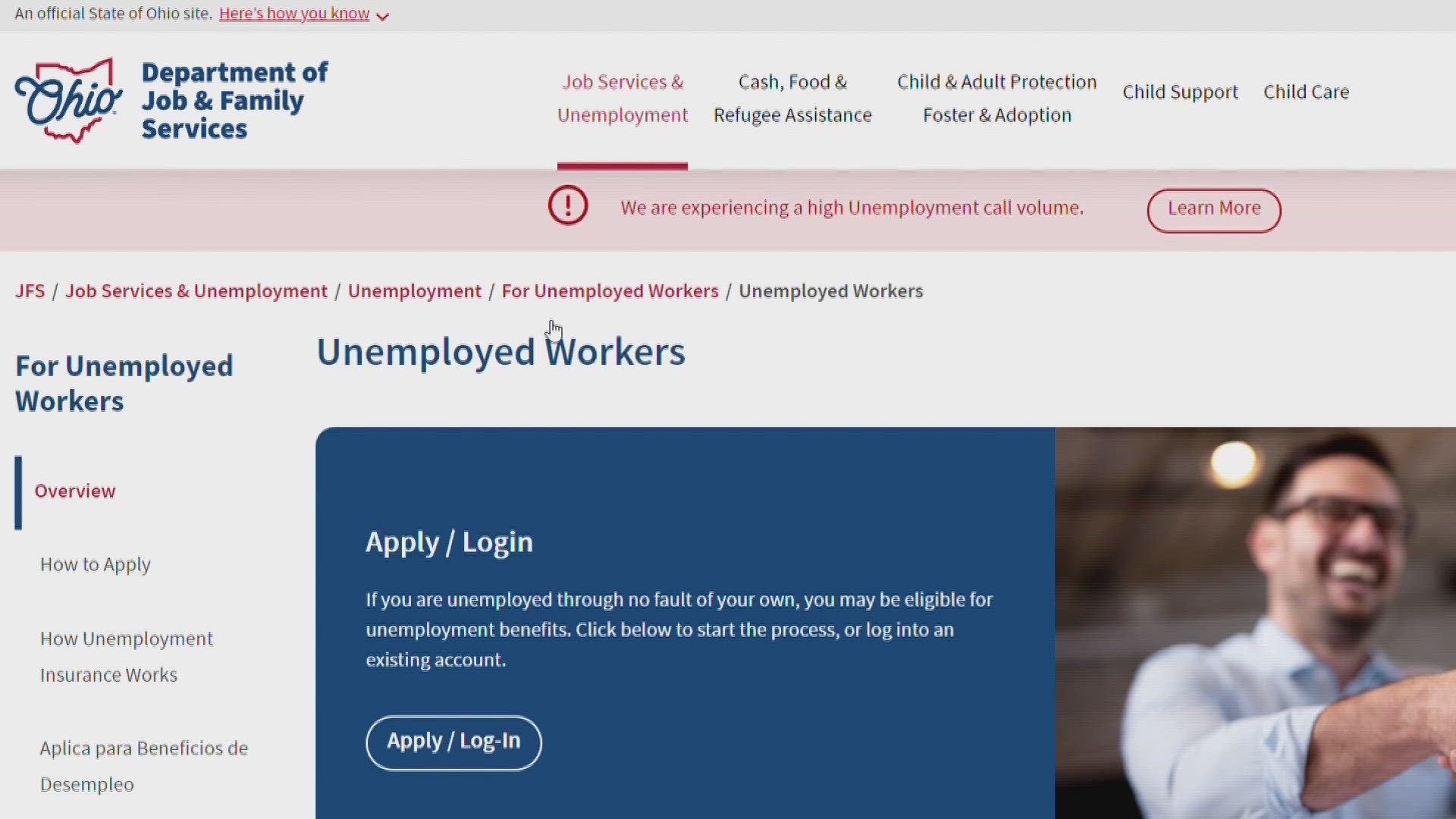COLUMBUS, Ohio — For Jessica Eland, it started with a verification code in a text message from the Ohio Department of Job and Family Services. A code she never requested.
“Then on Sunday when I went to do my weekly claim, I was not able to access my portal for unemployment,” Eland said.
She was locked out of her account.
Just this week, ODJFS confirmed there has been an increase in the number of attempts to fraudulently access the state's unemployment system.
It remains a costly issue across the nation and here in Ohio, a state that has paid out millions in fraudulent claims.
This is despite a new grant program launched three months ago from the U.S. Department of Labor to provide up to $200 million to "help states build systems to prevent and detect future fraud more effectively." It includes $600 million to "modernize vulnerable state IT systems."
"I just hope that people are more aware that this can happen even since they came up with more security procedures since COVID and you know more of the fraud was happening then. And I hope that the state takes accountability and really supports their citizens, especially if this continues with the information they've gathered from us,” Eland said.
In a statement to 10TV, ODJFS said in part, "we don't have any updates other than we have identified the issue, which involves criminals accessing an individual's account using fake credentials and have addressed it. It is too soon to tell how that will impact initial claims over the next week."
Here's what to do right away if you suspect you're impacted:
- Place a fraud alert with one of the three credit bureaus and get a free credit report from them
- Then, consider adding an extension to that alert or a credit freeze.
The three credit bureaus are Experian, TransUnion and Equifax.
More resources can be found on identitytheft.gov or irs.gov.
ODJFS said anyone locked out of their account needs to contact them and report the fraudulent activity online.

